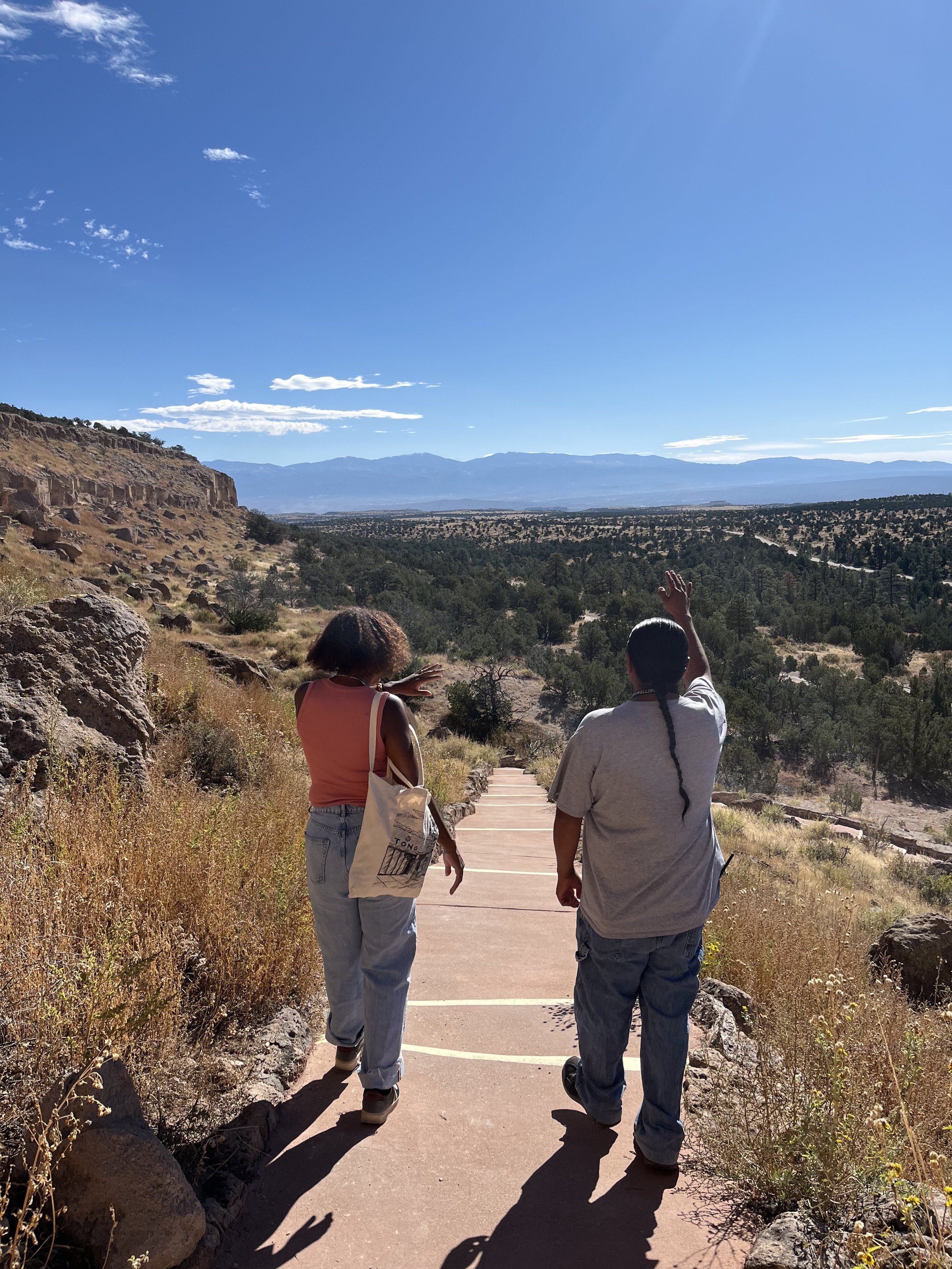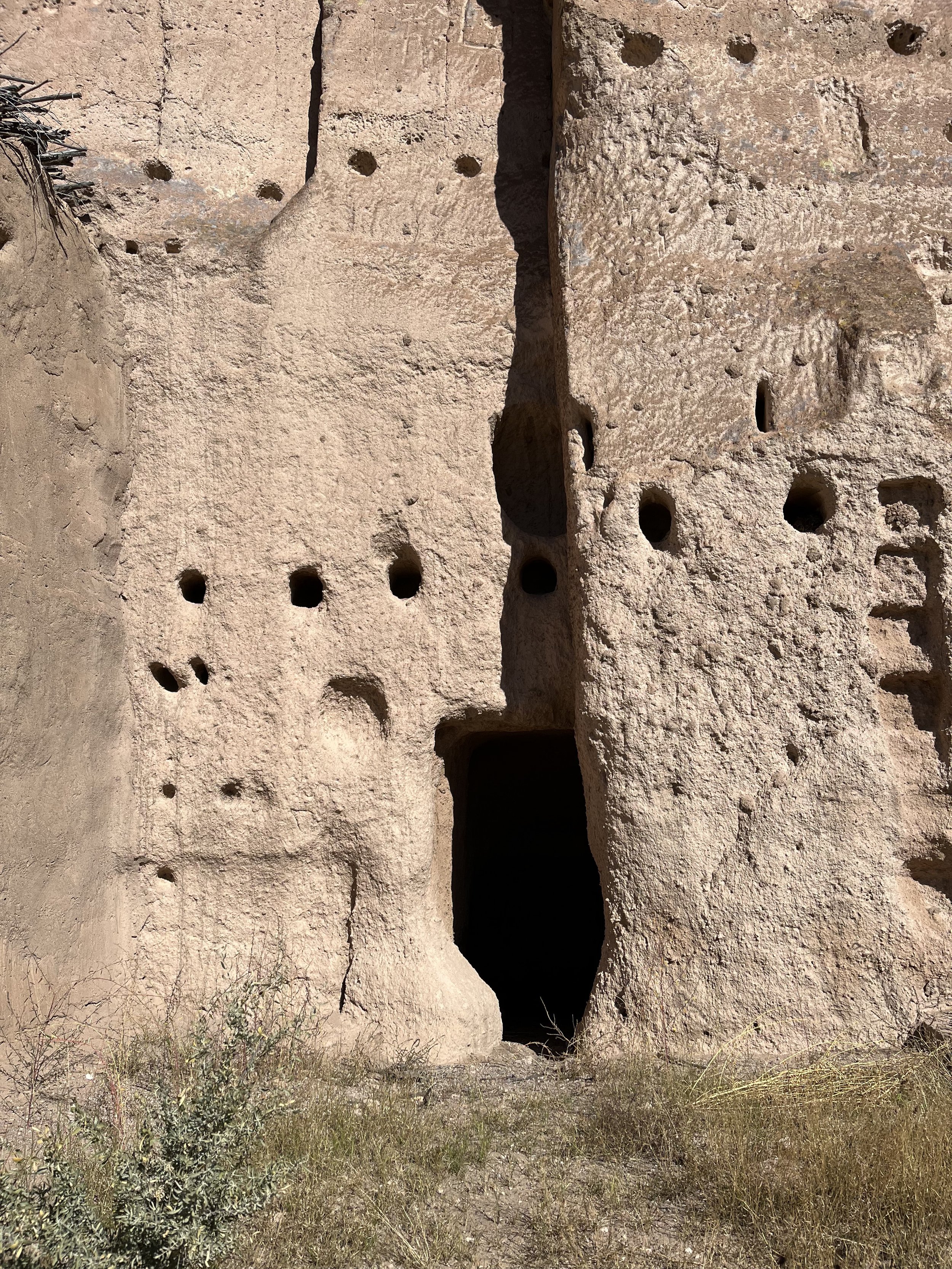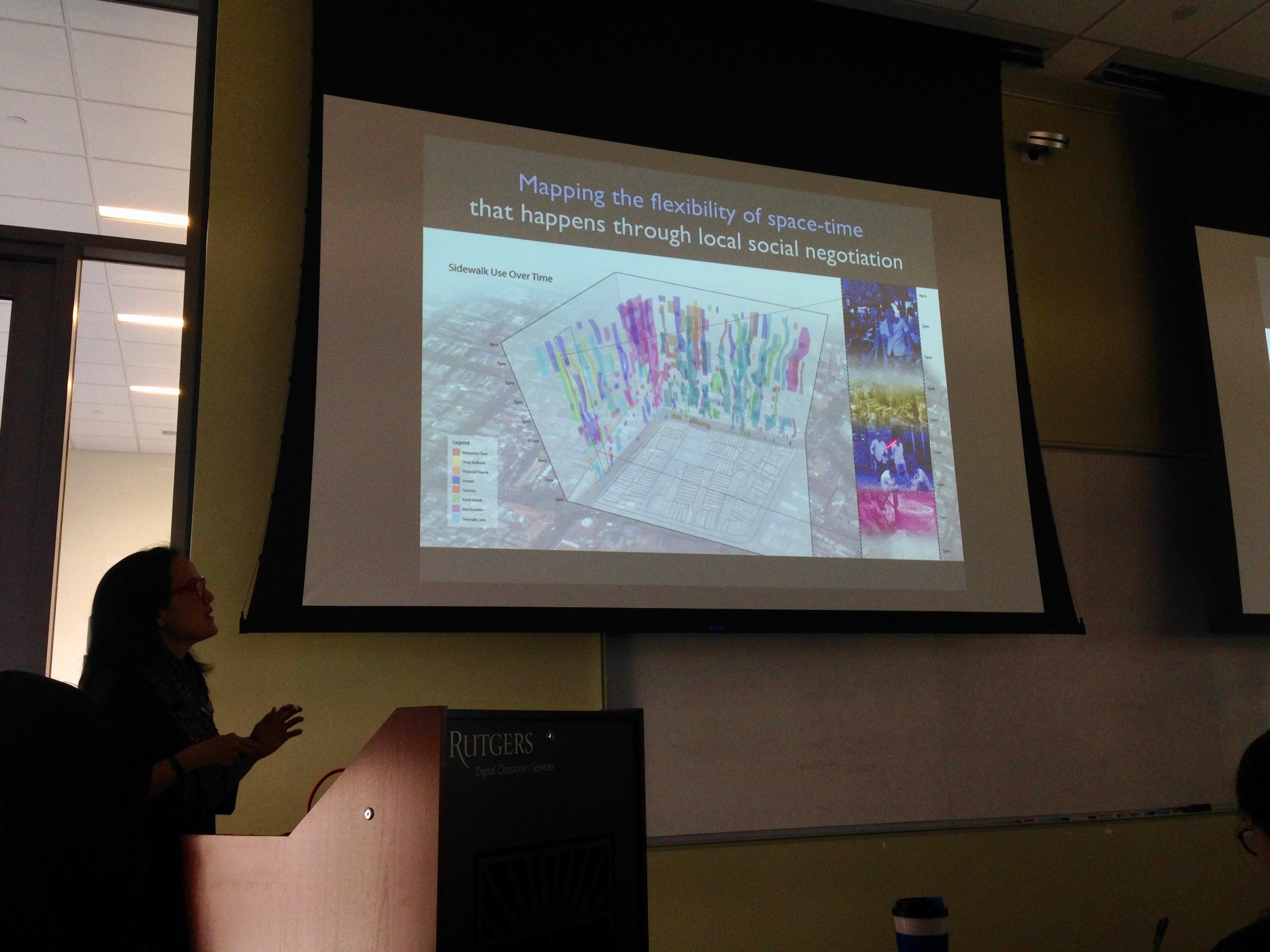Our new book will be out soon - Collaborations in Architecture & Sociology by Anita Bakshi & Zaire Dinzey-FLores (Routledge 2025)
Building off of our Society&Design Lab work we wrote a book together!! This book, by an architect and a sociologist, addresses the disconnect between the design of the built environment and social life and lays out a pathway for interdisciplinary engagement. Through this scholarly collaboration, the authors create a new interdisciplinary orientation and methodology, termed SOCIOARC, that recognizes the relationship of the built form and aesthetics to social experience. Shifting between the architectural and sociological imaginations, it provides a strategy for rethinking the nature of the ‘objectives’ of the research enterprise and the ‘objects’ that designers create. This approach opens up the possibilities for design and sociology to together inform new and more just ways of making, being and occupying space. The first part of the book examines the methodologies and conceptual lenses of architecture and sociology in parallel. The authors then tether together complementary approaches to offer a new transdisciplinary practice for researching and designing the built environment. A collection of tried-and-tested exercises is provided to enable students and practitioners to employ this approach in their work. Accessibly written and illustrated, this book will be an essential resource for undergraduate- and graduate-level students of sociology, architecture, urban design, landscape architecture, and planning, and all those interested in shaping a more just, equitable society through our built environment.
“We merged sociology and architecture to create SOCIOARC, a process of aesthetic and substantive reconciliation to arrive at just and beautiful places, as collectively defined. In SOCIOARC the “good” and the “just” is not prescriptive and has no predetermined shape or form. Rather, the “just,” the “good,” and the “beautiful is defined through a dynamic iterative process that invites different positions and voices to come together. SOCIOARC is also an epistemological, methodological, and practical framework for studying and producing the built environment. Epistemology refers to the frames of knowing that we bring to our work: how we evaluate what we see, thereby laying the groundwork for how we act on the world. This attention that we bring to the world is shaped by our social and cultural identities, as well as our disciplinary trainings (in this case in architecture and sociology). SOCIOARC seeks to unsettle siloed ways of seeing and imagining the world, in order to see through a new shared lens. Epistemology shapes the methods we favor and use. Therefore, the first step of the guided SOCIOARC approach is to look again, through new lenses, at an expanded architecture and sociology, in order to be ready for the methods described in the second part of the book.
This requires sociologists and architects to engage in a process and a methodology that draws from the community, and from culture, and from people to design the built environment in a new SOCIOARC way. Bringing the sociologist and architect together gestures towards a specific kind of product. This is not about just making a community healthier, or more efficient, or nicer. It is about thinking of the elements, processes, and methods that could produce a more just, social, creative, and innovative design. ”
Society&Design Lab - A Research Group at the Center for Cultural Analysis (CCA)
The Society&Design Lab brings together scholars and practitioners from different disciplines to discuss methods for investigating the urban condition. Workshops are geared towards developing fruitful exchanges between disciplines and encouraging experimentation with different tools for understanding how the built environment is composed, developed, understood, experienced, and lived. Critiques of urban spatial production remain sequestered within disciplinary discussions and often do not make it to those who design, plan, and build the city. This research group seeks to encourage experimentation across disciplines, including architecture, landscape architecture, sociology, and urban design.
Some photographs from our October 2022 research trip to New Mexico on Tewa Land
Annette M. Kim
is Associate Professor at the University of Southern California’s Price School of Public Policy. She is also the Director of SLAB, the newly formed spatial analysis laboratory that advances the visualization of the social sciences for public service through teaching, research, and public engagement. Her research experiments with critical cartography and spatial ethnography to re-conceptualize contemporary urbanism and find more inclusive and humane ways to design and govern the 21st-century city.
2018 Methodology Workshop
This half-day workshop brings together practitioners, scholars and students to address the interconnected challenges of design and sociology, investigating methods for bridging sociological and architectural imaginations. That is, so that architects, urban designers, and landscape architects can design for the social individual and the sociologists can see and investigate the importance of space. Architects need to design for specific publics. Sociologists need to attend to the specifics of the material world in order to fully understand social dynamics.
We will explore methodologies employed by designers, activists, and community organizers in their research and practice and look for overlaps and points where these methodologies might inform the techniques employed by practitioners beyond disciplinary boundaries. Standard approaches separate the many scales that compose the built environment into disconnected categories, such as “regional design” or “suburban sociology,” without addressing interconnected and nested scales of spatial experience. This workshop explores how we might move beyond such fragmented and truncated understandings of place. The first half of the workshops will consist of brief speaker presentations and a panel discussion. The second half will consist of small group working sessions and ideas exchange between design and sociology faculty and students on their own research and applied projects.
Speakers:
Brian Phillips, AIA, LEED AP
Principal at Interface Studio Architects, Philadelphia
Nadine Maleh
Executive Director, Institute for Public Architecture
Amanda Schachter, AIA
Partner at SLO Archictecture
A. Mychal Johnson
Cofounder of South Bronx Unite
Society&Design Lab - A Research Group at the Center for Cultural Analysis (CCA)
The Society&Design Lab brings together scholars and practitioners from different disciplines to discuss methods for investigating the urban condition. Workshops are geared towards developing fruitful exchanges between disciplines and encouraging experimentation with different tools for understanding how the built environment is composed, developed, understood, experienced, and lived. Critiques of urban spatial production remain sequestered within disciplinary discussions and often do not make it to those who design, plan, and build the city. This working group seeks to encourage experimentation across disciplines, including architecture, landscape architecture, sociology, and urban design. Since many practitioners and urban scholars operate with a working understanding that design should always engage with a sense of place and context - both physical and social context - why is it that this does not always (or even often) happen? What goes wrong? What tools are designers and social scientists missing? Why aren’t the critiques pointed out by theorists, critics, social scientists, or historians being considered in design education and practice? What needs to happen in order for our cities to be filled with designs that are truly responsive to context, and that offer meaningful engagement with the social and cultural aspects of place? Addressing these questions must involve conversations about process and the assumptions often made by practitioners and scholars.
Workshops are geared towards cross pollinating tactics and tools of analysis outside of the disciplines in which they are traditionally used. We explore how we might bring the words and statistics and narrative studies often used by sociologists into play in the design of spaces. Similarly, we question what role the use of maps and photographs, image analysis, drawing techniques, and recorded site observations can play in sociological studies. This will serve to assist scholars and practitioners - from all fields that study the urban - to develop theoretical and practical competencies for working with and designing for specific place-based, contextual manifestations, rather than general phenomena.






























